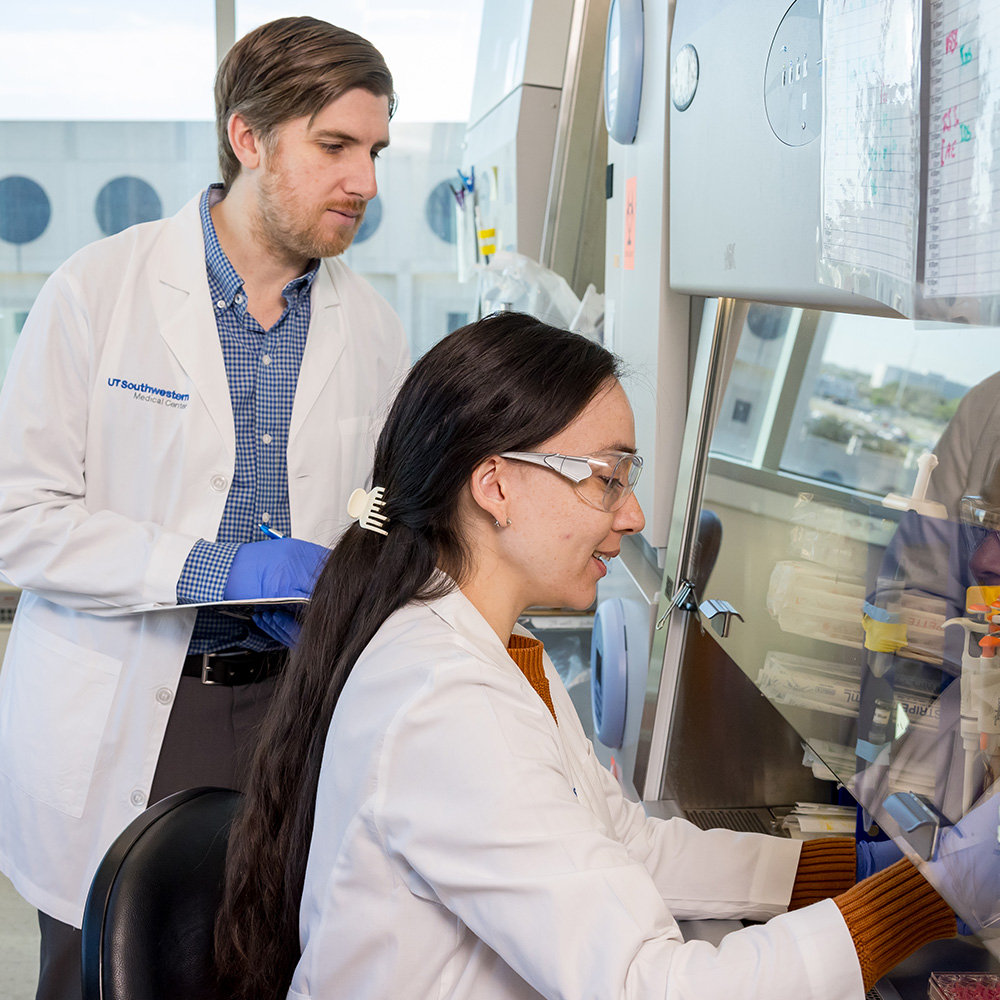Letters, FIT kits can triple colon cancer screening rates

DALLAS – Sept. 5, 2017 – Sending a letter and, in some cases, a simple mail-in kit tripled colon cancer screening completion among low-income adults, researchers at UT Southwestern’s Simmons Cancer Center report this week in JAMA.
Two groups of 2,400 uninsured or underinsured, at-risk adults who were patients at Parkland Health & Hospital, the safety-net provider in Dallas, were mailed letters urging them to be screened for colon cancer:
- Group 1 received a letter suggesting they get a colonoscopy.
- Group 2 received a letter and an easy-to-use, at-home test kit called FIT (fecal immunochemical test).
Both groups were compared with a similar group of 1,200 at-risk patients who were told during doctor visits to get tested, but received no additional outreach. After three years, researchers found:
- 38 percent of those receiving just letters completed screening
- 28 percent of those receiving FIT completed screening
- 10 percent of those who did not receive follow-up after being told to get tested completed screening

“The good news is that, looking at three-year process completion, both outreach strategies tripled screening completion compared to the usual, visit-based care. The bad news is that about a third of the people who did FIT did not do it once a year as indicated,” said Dr. Ethan Halm, Director of UT Southwestern’s Center for Patient-Centered Outcomes Research and a member of the Harold C. Simmons Comprehensive Cancer Center, one of just 49 National Cancer Institute-designated Comprehensive Cancer Centers in the nation.
Colorectal cancer is the fourth most commonly diagnosed cancer in the United States, according to the National Cancer Institute. Colon cancer screening is especially important because not only can it detect cancer at an early stage, but it can actually prevent cancer by creating an opportunity for removal of polyps before they become cancerous.
“I think the biggest takeaway is the importance of any form of outreach,” said Dr. Amit Singal, Associate Professor of Internal Medicine and Clinical Sciences. “Both forms of outreach did significantly better than visit-based screening, which is still the usual form of care in most health systems throughout the United States.”
There are lessons in this study for patients, lessons for physicians, and lessons for health care systems, the researchers said.
“The lesson for patients is to understand that the stool blood test (FIT) strategy is an every-year thing – not one-and-done. The challenge for physicians in primary care is to communicate more effectively that the home FIT kit strategy requires the need for an annual test, as well as follow-up colonoscopy, if the test is positive. The lesson for large health systems is to know that an easy-to-execute outreach strategy will markedly increase screening rates for your population,” said Dr. Halm, Chief of the William T. and Gay F. Solomon Division of General Internal Medicine, who holds the Walter Family Distinguished Chair in Internal Medicine in Honor of Albert D. Roberts, M.D.
Furthermore, given limited colonoscopy capacity in many health care systems, increasing education on how to correctly use FIT and increase screening uptake is called for, said Dr. Singal, who holds the David Bruton, Jr. Professorship in Clinical Cancer Research.
Other UT Southwestern researchers who participated in the study are Dr. Celette Skinner, Professor of Clinical Sciences and with the Simmons Cancer Center; Dr. Chul Ahn, Professor of Clinical Sciences; Dr. Deepak Agrawal, Associate Professor of Internal Medicine; Dr. Christian Mayorga, Assistant Professor of Internal Medicine; Dr. Jasmin Tiro, Associate Professor of Clinical Sciences; Katharine McCallister, population sciences project coordinator; Joanne Sanders, population sciences data analyst; Wendy Bishop, department administrator; and Adam Loewen, database analyst. Dr. Noel Santini is Senior Medical Director of Ambulatory Services at Parkland Hospital. Dr. Skinner holds the Parkland Community Medicine Professorship.
This work was conducted as a partnership between UT Southwestern and Parkland Health & Hospital System and funded by a grant from the National Cancer Institute. The Simmons Cancer Center at UT Southwestern is the only NCI-designated Comprehensive Cancer Center in North Texas and among only 30 U.S. cancer research centers to be designated by the National Cancer Institute as a National Clinical Trials Network Lead Academic Site.
About UT Southwestern Medical Center
UT Southwestern, one of the premier academic medical centers in the nation, integrates pioneering biomedical research with exceptional clinical care and education. The institution’s faculty has received six Nobel Prizes, and includes 22 members of the National Academy of Sciences, 18 members of the National Academy of Medicine, and 14 Howard Hughes Medical Institute Investigators. The faculty of more than 2,700 is responsible for groundbreaking medical advances and is committed to translating science-driven research quickly to new clinical treatments. UT Southwestern physicians provide care in about 80 specialties to more than 100,000 hospitalized patients, 600,000 emergency room cases, and oversee approximately 2.2 million outpatient visits a year.
###
Media Contact: Cathy Frisinger
214-648-3404
cathy.frisinger@utsouthwestern.edu
To automatically receive news releases from UT Southwestern via email, subscribe at www.utsouthwestern.edu/receivenews.





